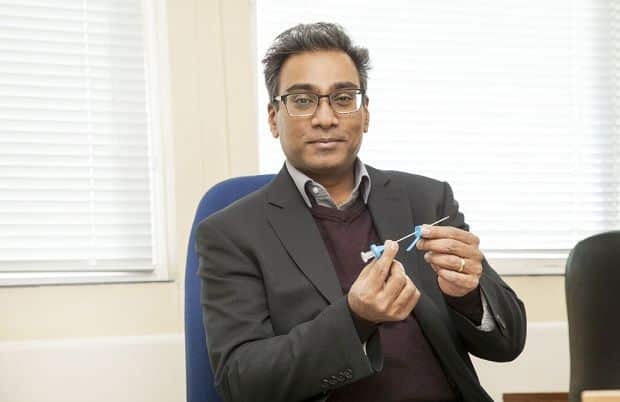A Malaysian has been appointed professor of urology at Cambridge University, the first in the field in the institution’s 812-year history.
According to the university records, Prof Vincent J Gnanapragasam is the first professor of urology to be appointed by the second oldest university in the English-speaking world.
“As far as I can find and on (searching) the University of Cambridge library records, there has not been a Professor of Urology in the university before, so I believe I am the first” said Prof Vincent, who has been a lecturer at the university for 13 years.
He is also an honorary consultant urologist at the university’s hospital.
His journey to the UK began when he started his medical studies at Newcastle in 1988 and graduated with a PhD.
He previously attended primary school education at SK La Salle in Petaling Jaya before going to secondary school in Singapore.
His work specialises in prostate cancer, researching the disease, and managing it in patients.
“I was appointed a clinician scientist there through a personal award from Cancer Research UK and moved to Cambridge in 2008,” Prof Vincent added.
The 52-year-old, who hails from Petaling Jaya, said his path to the professorship was unusual as the university had decided to change the official academic titles from “Reader” to “University Professor”.
“I was promoted to Reader last year. This is an academic title that has existed at the University of Cambridge for hundreds of years.
“This year the university decided to change their official academic titles and Readers are now considered Professors, hence my official title is Professor of Urology” added Prof Vincent, who was promoted to professor in early October.
His achievements in the field include the invention of a device that allows prostate biopsies to be performed more safely on men with suspected prostate cancer.
The device, called CamProbe, has a lower risk of infection and is performed under local anaesthesia through the transperineal route (the area under the testicles).
The invention is groundbreaking because current prostate diagnosis requires a biopsy needle to be passed through the wall of the intestine to reach the prostate. This poses the risk of bacterial infections from the intestine entering the urinary tract and bloodstream.
“Skill, talent and innovation can come from anyone. Nobody should be deprived of opportunities to realise their full potential.”
“It is only through challenge, competition and adversity that anything meaningful can ever be gained,” he said.
According to the university’s website, Prof Vincent also holds a number of patents and has won numerous awards for his research.
These include the CE Alken Prize, the Urological Research Society Medal, a Hunterian Professorship and the University of Cambridge Vice Chancellor’s Award for Research Impact (Established Researcher).








